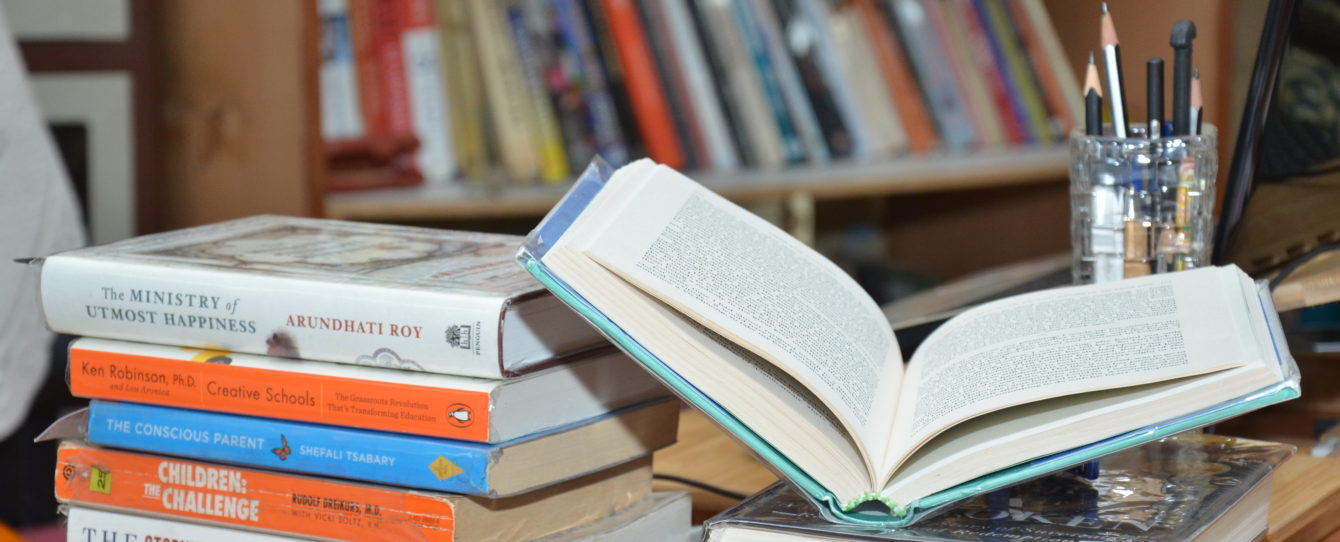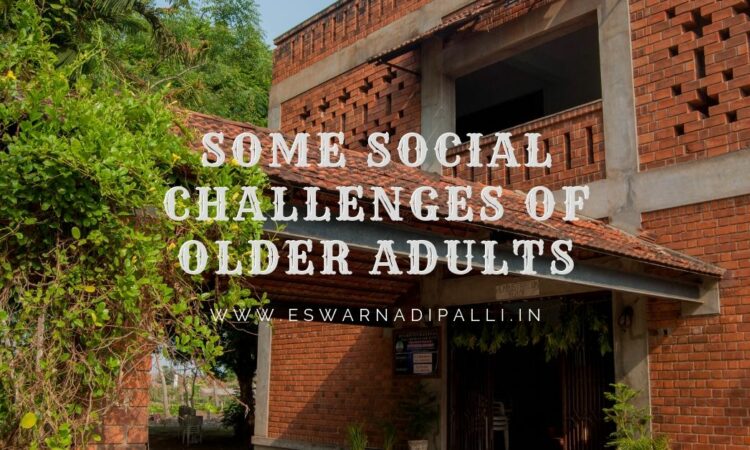(Listening to the indefinable cold tales, there is a fragile trail that runs like an unending saga. It’s crammed with emptiness, of betrayal, of insensitiveness, a cruel crumbling of age-old Indian joint family system. The domination of material appeal over the traditional norms, I find an intolerant ‘the modern day young couples’ chasing away their debilitated parents in their sunset years to gloomy, moist, shared spaces of old age homes.)
“Why don’t you write one article on senior citizens” a friend of mine who appreciates my blogs and enjoys my weekly photographs had suggested. He is enjoying the flavor of young vigour in his seventies.
Since long, I have known them as a couple who have been going through ‘the empty nest syndrome.’ Although it’s a tough demand for adjusting spending time all alone, they have come to terms with reality. I saw them dividing their time between home and social activities. Both their children settled in the US, and being aware that the chances they would return remote, they resigned themselves to an isolated mode of tolerant lifestyle.
In India, accepting the reality, for many elderly, isn’t so fortunate though. The fact was harshly evident in my recent visit to an old age shelter. The grey side of human remoteness gloomily was there to mull over. Never had I imagined that the wrinkled realities and sad truths could be so shockingly real when one left in social isolation. Dealing with loneliness a mental load many couldn’t cope for long is what I have learned from my visit to the shelter.
I sat with the in-charge and the secretary of the old age home: Sri Kodali Venkataratnam. He is an eighty-year-old retired executive in the state irrigation department. In the next two days, I could get a nick of some critical needs of elders who got abandoned by family and the skulking emotional aspects of the senior citizens in the home.
In the words of the secretary:
“Since its inception, ten years ago, many aged inmates had breathed their last. I say they were very unfortunate – who had no family members to supervise the final rituals. Caring for the old when alive is one aspect, but planning and completion of the rituals of the death of an inmate demand extreme empathy and caregiving. It’s known that Indian customs involve many taboos; it includes many do’s and don’ts over handling a dead body”.
“If he is an orphan, the situation presents a bigger problem. People hardly display any sympathy at the death of a destitute. He went on, besides monitoring other funeral customs, it’s my responsibility to plan and complete the final service rituals too. I’ll make sure that such lonely souls get a decent farewell. It is one of my primary human concerns.”
He further shared an instance of crookedness of the families and their utter inattention with which they look upon their aged parents. He referred to one such a case “ a seventy-year-old is staying in the home for four years, and no one took pains to visit him or cared for his needs at his difficult age. But after his death, his sons had celebrated the customary eleventh-day ceremony with a fanfare that people mistook it as a marriage function”.
“This is the hypocrisy of the younger generation toward their aged parents.” And for me, I blot it as an evolving sad commentary of a ‘new normal’ prejudice toward the elderly.
The secretary recounts – the many reasons they banish older people like orphans and end up in homes like this.
The foremost reason: the children get settled in other countries, or the son’s or daughter’s family has little time to spare for medical urgencies. Family members are unwilling to provide services like long-term care necessary for them. The problem gets exacerbated if they left confined to bed. The unkindest alternative: many speak out defending their choice: “It’s easy to pay for the services at an old age home than to put my kids, my family to an unnecessarily prolonged predicament.”
Spread in roughly two acres the old age home got its planning and construction done allowing for the social interaction and outdoor movement, and recreation for its aging inmates. Scattered around are small lots of greenery and cozy rest areas under shady trees. I pleasantly gathered to know that their physical alertness shoots up once they come out and spend in the outdoors.
Whoever works here, for the old aged, I saw them attentively committed. Compassionate caregiving is the byword evident in many of the services extended to all the senior residents. It was visible among all the team members I have met at home. I could notice the office staff, the cleaning people, the cooks, the gardeners all engaged in nursing with a touch of readiness.
Everyone was keen to go about their duties with a gentle acceptance of the aged residents. “Don’t give up hope, we are here for you,” is the message that swept all around. The secretary when proudly took me around explaining that, “We are working as one compassionate group to cheer up a difference in the penultimate stage of their lives.”
Providing for psychological care is one critical need of the residents. There are a hundred and fifty occupants, both male and female included. And it mattered for the caregivers, to make sure that the elderly residents wake up with a sense of respect, and surrounded by caring people.
The secretary of the old age home has a few interesting notes; which reflects the strange variants of loneliness and dependency.
“They think about most of their grandchildren. But none bothers to pay a visit, and they were not willing to spend time with their grandparents. It revealed a skewed impression that the sons and daughters have relinquished their affiliations, once their elderly parents lodged in old age homes”.
The kith and kin are not even faintly considerate. “This is the tragedy of the withered existence in the old age home,” the dedicated caregiving secretary moans.
I spoke to two residents of the home for over four hours. My idea was rather to listen to them. The brief encounter gave me a glimpse of their emotional levels – their unspoken, unlistened versions of their bitter biographies.
He is an active lanky eighty-six-year-old Shankar. Throughout our conversation, I caught his eyes shining with tears; ready to burst. He worked as a village head while he was young five decades ago. Quoting his words, “I had earned fame and goodwill and money. Sad to say, I have nothing left today: neither fame nor money.” My son quarrels over the lost properties and money. Unwilling to go with him, I have found solace in this home at this age.”
In prime age, he was an active walking buff and into yoga. But today, he sounds nostalgic, that the old age isn’t permitting to carry out any of these activities. He receives a pension of thousand rupees. The sad part is that he is waiting for someone who could donate an additional thousand to meet the medical bills every month? Before he concluded, he stands with folded hands with a request to find someone who could help him out.
It’s a pathetic manifestation – how the absence of family support had reduced a near-octogenarian to a sorry supplication.
Guru Lakshmi is a sixty-five-year-old widow, who relates a story of a son’s negligence towards his mother. Her elder son disowned her after his marriage. It was over twenty years that he had ever contacted her. The younger son was good enough but financially isn’t strong to take her along with his family. “A day wouldn’t pass without a loud discussion in the family related to my subsistence.” She recalled controlling her tears. While she spoke, she tilted her face away. Perhaps, not willing to show her gloomy face to me.
One day at the age of fifty, she took a decision and walked out of the house. She heard of this old age shelter and landed there. Before she left her son’s house, she received a cruel warning from her son, “I wouldn’t see you again back in my house.” But she receives every month eight hundred rupees from her younger son, which she spends for her medicines.
Haltingly, she spoke of her past, “In twenty-five years, as if a thief would steal everything. I got robbed of all my glory of my past. I lost my husband, along with him, all the properties. I’m left with nothing except two quarreling sons. Who fought daily, over how burdened ‘caretaking’ of me would be.”
To my eyes, she appeared like a tough fighter. She is a stubborn optimist, in her twilight years carrying those suffocating emotions. Living in isolation away from the affections of family members requires a mind of steel. She appeared like a diehard hopeful to live and die gracefully. After our conversation is over, she sat for a while, tears streaming, and she did not try to wipe them. I just sat staring at her, not knowing how I should respond. Words failed me at the moment.
Listening to the indefinable cold tales, there is a fragile trail that runs like an unending saga. It’s crammed with emptiness, of betrayal, of insensitiveness, a cruel crumbling of age-old Indian joint family system. The domination of material appeal over the traditional norms, I find an intolerant ‘the modern day young couples’ chasing away their debilitated parents in their sunset years to gloomy, moist, shared spaces of old age homes.
Since the ages of the traditional Indian society and the age-old joint family, the system has been instrumental in safeguarding the social and economic security of the older adults, and it has got wonderfully absorbed in our society for generations.
But the attitudes towards the older adults seemed conspicuously embarrassing in recent years. It’s perhaps, because of rapid changes in our society, and the emergence of nuclear families in recent years the senior citizens are more likely seen exposed to emotional, physical distress, and less cared attitude in treating them.
In our city of fifteen lakhs, there are over a hundred old age facilities. The fact speaks of the gravity of worrisome reality today and in the years to come.
The secretary has an appeal. Despite all the facilities, if the government could provide a free health care card to each inmate. We could address all major health issues for many who sank as “the old of the oldest.” Hospital charges, medicines attract heavy expenditure. That is a daily nightmare for the managing committee overseeing the home. How to arrange for all the inmates a decent medical treatment? He adds, not lost in his optimism, “For all who are with us the health issues always seemed urgent and now. Are we prepared?
“Old age is far more than white hair and wrinkles, the feeling that it is too late and the game finished, that the stage belongs to the younger generation. Ironically, true evil is not the weakening of the body, but the indifference of the next generation.” – Andre Maurois.
(I live in Vijayawada, Andhra Pradesh, India)

